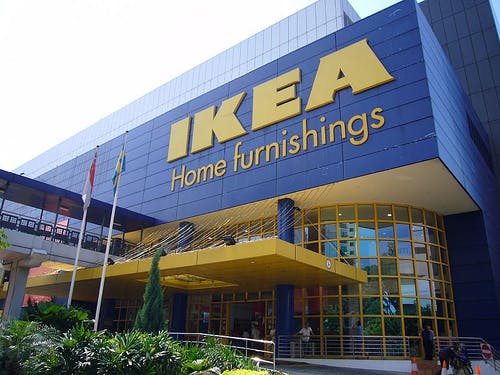There’s quite a bit of talk about employer branding, but what happens when bad publicity hits back? Ikea is figuring that out as they deal with the backlash at their U.S. based manufacturing plant:
But three years after the massive facility opened here, excitement has waned. Ikea is the target of racial discrimination complaints, a heated union-organizing battle and turnover from disgruntled employees.
Workers complain of eliminated raises, a frenzied pace and mandatory overtime. Several said it’s common to find out on Friday evening that they’ll have to pull a weekend shift, with disciplinary action for those who can’t or don’t show up.
Kylette Duncan, among the plant’s first hires, quit after six months to take a lower-paying retail job. “I need money as bad as anybody, but I also need a life,” said Duncan, 52. She recalled having to cancel medical appointments for her ailing husband because she had to work overtime at the last minute.
Branding doesn’t mean much without the product to back it up and stories like this have a way of eroding confidence in a company.
Tarnishing a good reputation
Before this story, Ikea had a stellar reputation. Several years ago, I read about the president of their North American operations and her experience in dealing with work/life balance:
As a rising IKEA executive in the late 1990s, Pernille Spiers-Lopez was charging from one task to another when a sudden chest pain signaled a possible heart attack. Lying in the ambulance, she thought to herself, “Oh, so this is success,” she recalled recently.
As it turned out, it wasn’t a heart attack but a sign of stress – a signal she needed to balance life and work the way she had been telling employees to do. “My husband for many years said, ‘Yeah, you talk a lot about life balance, but when you’re here, you’re not here,” she said during a presentation at the Wharton Leadership Lecture series March 18.
Many executives talk about the benefits of worker-friendly policies, but Spiers-Lopez has clearly put them into practice at IKEA North America’s stores – 18 in the U.S. and 11 in Canada.
Of course, that is wildly out of alignment with the recent Ikea story from the Los Angeles Times. An executive that puts into practice worker-friendly policies wouldn’t be demanding consistent mandatory overtime or last minute notifications of weekend shifts. And as a working parent, Ms. Spiers-Lopez should know better. Of course, what adds even more interest to this story is the fact that she is now the head of global human resources for all of Ikea.
Not as easy as it looks
Of course, employer branding isn’t easy and it can be a high risk venture. The many years that Ikea has cultivated an image of responsibility and progressive thinking in human resources can be gone in a virtual instant if a story like this one lingers. And while certainly not as big of a deal as Walmart’s discrimination suit, Ikea had much more to lose in a situation like this.
The very difficult thing is this: how do you sum up the experiences and culture of thousands of employees worldwide? When employer branding experts talk about having near-perfect alignment between the message of their employer brand and the experience of being an employee, you’re really asking to do the impossible.
Some HR professionals would love to have a problem where only a small fraction of their employees are publicly unhappy. That may seem to be excusing Ikea’s actions but it is just a reality of being a large, global business. You’re not going to have a perfect track record. How Ikea handles this, especially in the public spotlight, is going to be as important as giving their employees new bikes as part of a bonus or the work they’ve put into creating the perception of a great place to work.
Recovery is possible
I still believe that, overall, Ikea is a great place to work. Stories like this one are seemingly rare and the bar for big box retailers is still very low. If you spend some time on Amazon.com, like I do, you’ll notice that even the best-rated products in every category have some negative reviews.
It’s the cost of being big: it’s impossible to make everyone happy.
But when you look at the overall record, Ikea is still doing well. Making this issue disappear the right way would go a long way in not only reversing the poor image, but strengthening the overall employer brand as well.
